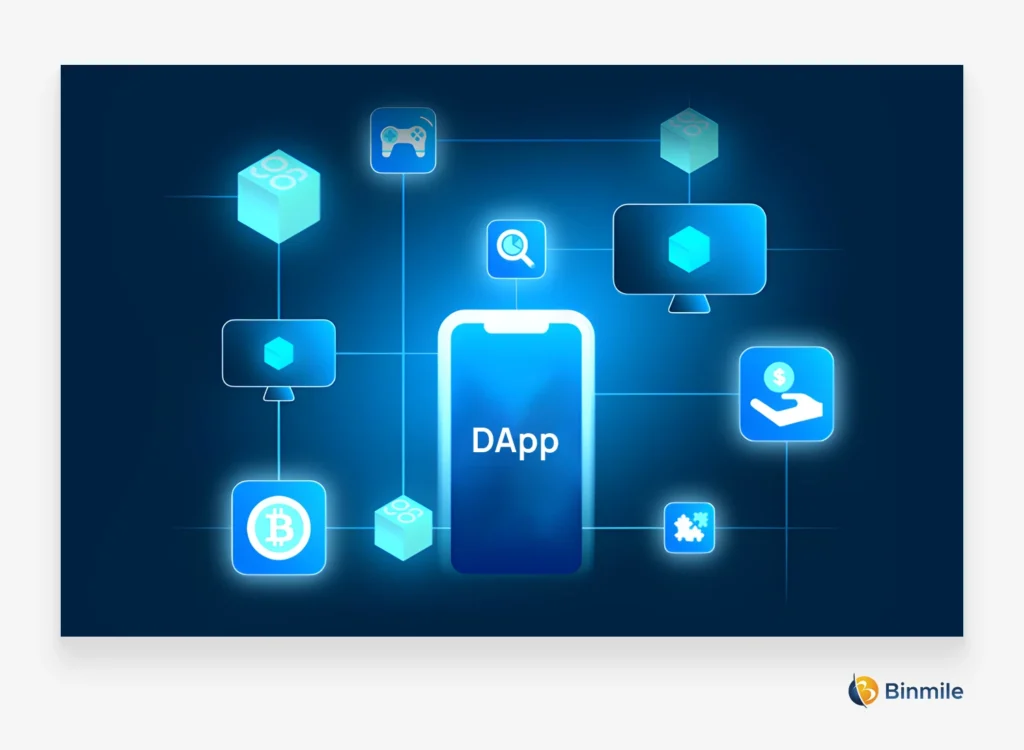In recent years, the term Decentralized Application (DApp) has gained a lot of attention, especially in the world of blockchain and cryptocurrency. But what exactly is a DApp, and why are they becoming so popular?
What is a DApp?
A DApp (Decentralized Application) is a type of application that runs on a blockchain network rather than on centralized servers. Unlike traditional apps, which rely on a central authority like a company or server, DApps operate on a decentralized platform. It thus allows them to be more secure, transparent, and censorship-resistant.
How do DApps work?
DApps are built on blockchain platforms, most commonly Ethereum, which enables developers to create and deploy smart contracts. Smart contracts are self-executing contracts where the terms are directly written into code. These contracts thus automatically execute actions based on pre-set conditions.
When you use a DApp, blockchain records your interactions. For example, if you’re making a payment, multiple nodes (computers) in the network will confirm it, thus making sure everything is verified and no one can tamper with the transaction.
Example of a DApp: Uniswap
One popular example of a DApp is Uniswap, a decentralized exchange (DEX) built on Ethereum. Uniswap allows users to trade cryptocurrencies without relying on a central authority. It uses a smart contract to match buyers and sellers and automatically executes transactions based on the liquidity pools available in the system.
In a traditional exchange, users would have to trust a central authority to manage their funds and execute trades. But with Uniswap, users have full control of their crypto assets, making the exchange process more secure and transparent.
Why DApps Matter:
- Decentralization: DApps are hosted on a blockchain, which means no single party controls the application.
- Open Source: Most DApps are open-source, allowing anyone to inspect, use, or improve the code.
- Transparency: The data and code of DApps are visible to everyone, enhancing trust among users.
- Smart Contracts: DApps use smart contracts to automate transactions and processes without the need for intermediaries.
Conclusion:
DApps represent a huge shift in how applications are built and used. They have the potential to change industries like finance, gaming, and also social media by eliminating the need for central control and reducing risks of censorship and fraud. As blockchain technology continues to evolve, the use of DApps will only grow.
– Ketaki Dandekar (Team Arthology)
Read more about Decentralized Application (DApp) here – https://www.investopedia.com/dapps.asp
